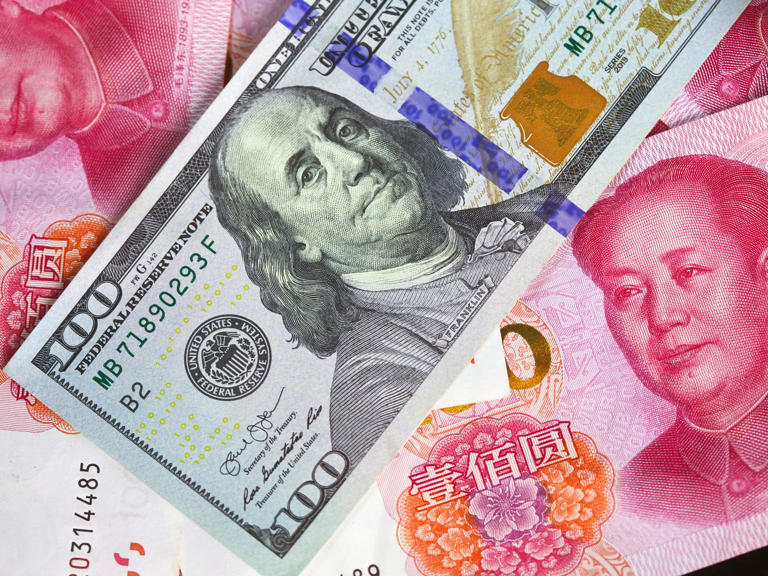Chinese businesses are currently exhibiting reluctance to convert their foreign exchange earnings into Chinese yuan, opting instead to hold onto their dollar-denominated assets. This hesitation stems from several factors, including the yuan’s depreciation against the US dollar and the allure of higher interest rates offered on offshore deposits compared to domestic yuan accounts.
According to data from the People’s Bank of China, foreign exchange deposits held by Chinese businesses increased from $778.9 billion in September to $832.6 billion in March, indicating a preference for holding onto foreign currencies rather than converting them into yuan. The yuan’s recent weakness, marked by a decline of nearly 2% against the US dollar since the beginning of the year and 5% since 2023, has contributed to this trend.
Chinese exporters, in particular, are opting to retain their dollar earnings offshore due to the higher interest rates available abroad. Offshore deposits offer returns of around 6%, significantly higher than the meager 1.5% interest rate on yuan deposits in China. This divergence in interest rates further incentivizes Chinese businesses to hold onto their dollar reserves rather than converting them into yuan.
Becky Liu, head of China macro strategy at Standard Chartered, suggests that Chinese exporters may require confirmation of a Federal Reserve rate cut and a clearer weakening trend in the US dollar before they consider converting their offshore dollar earnings into yuan.
This reluctance to convert foreign exchange earnings into yuan highlights the challenges facing the Chinese currency in its quest for internationalization. Despite China’s efforts to promote the yuan’s global usage through initiatives such as bilateral swap lines and the expansion of the yuan-based CIPS messaging system, the dominance of the US dollar in global trade and finance persists.
Recent data from the International Monetary Fund (IMF) reaffirms the dollar’s status as the world’s preeminent reserve currency, with the greenback accounting for nearly 60% of global foreign reserves. While discussions about de-dollarization have surfaced, prompted by geopolitical tensions and concerns over US sanctions, the IMF data underscores the resilience of the dollar’s dominance.
Nevertheless, Dmitry Dolgin, chief economist for Russia and CIS countries at ING, suggests that the potential for further yuanization remains intact. China’s expanding trade relationships and financial infrastructure lay the groundwork for continued efforts to internationalize the yuan, albeit with challenges posed by the entrenched dominance of the US dollar in the global financial system.
